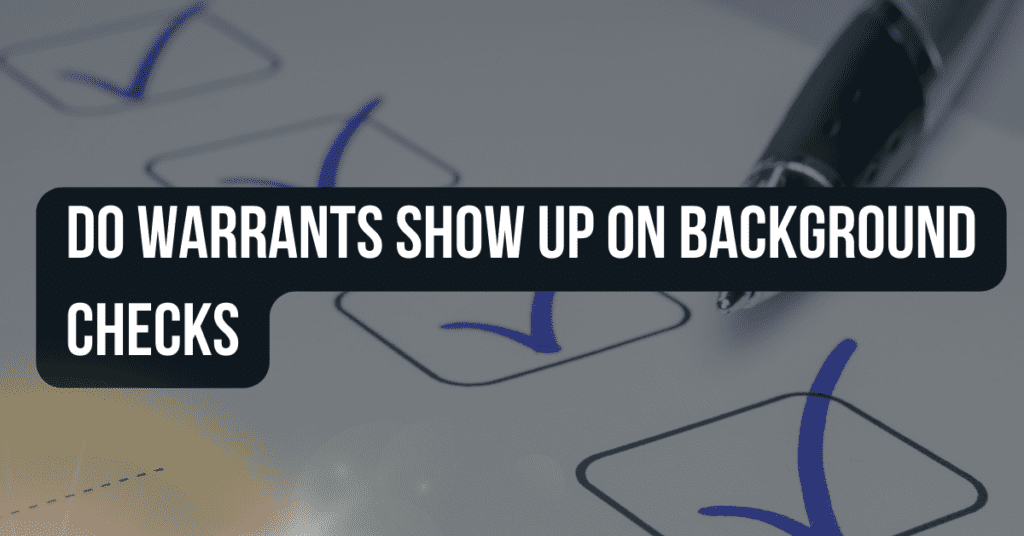
Warrants are legal documents issued by a judge or magistrate that authorize law enforcement to take specific actions, such as arresting a suspect or conducting a search. They are typically issued when there is probable cause to believe that a crime has been committed and that the person named in the warrant is involved. In the context of background checks, warrants can play a significant role in determining an individual’s criminal history and may have implications for employment, housing, and other areas of life. In this article, we will explore the impact of warrants on background checks, including how they are obtained, what information they contain, and how they are used by employers and other parties.
Do Background Checks Show Warrants?
Yes, background checks can show warrants. Warrants are legal documents issued by a judge or magistrate authorizing law enforcement to take specific actions, such as arresting a suspect or conducting a search. Since warrants are part of an individual’s criminal history, they can appear in background checks conducted by employers, landlords, law enforcement agencies, and other entities.
When conducting a background check, organizations or individuals may search public records, including court records and law enforcement databases, to gather information about an individual’s criminal history. This search may reveal the presence of active warrants, as well as other criminal background check, such as arrests, convictions, and pending charges.
The inclusion of warrants in a background check can have implications for the individual named in the warrant, especially in situations such as employment screening or tenant screening. Employers or landlords may view the presence of a warrant as a potential risk factor, leading to adverse decisions such as rejecting a job application or rental application.
It’s important to note that the availability of warrant information in a background check may vary depending on factors such as jurisdictional laws, the type of background check being conducted, and the resources available to the entity conducting the check. Additionally, individuals have the right to contest the validity of a warrant and challenge its inclusion in a background check if necessary.
Overall, while background checks can indeed show warrants, the specific details and implications may vary depending on various factors.
What Are Background Checks?
Background checks are systematic procedures used by individuals, organizations, and institutions to investigate and verify a person’s history, typically focusing on their criminal, financial, educational, and employment backgrounds check. These checks are conducted for various purposes, such as employment screening, tenant screening, volunteer screening, and security clearance processes.
The primary goal of a background check is to gather information to assess an individual’s suitability for a particular role, position, or opportunity. They are designed to provide insight into an individual’s past behavior, activities, and qualifications, helping decision-makers make informed choices and mitigate potential risks.
Background checks can encompass a wide range of information depending on the specific requirements of the requester and the nature of the inquiry. Some common components of background checks include:
- Criminal History: This involves searching local, state, and federal criminal databases to uncover any past convictions, arrests, or pending charges against the individual. It helps assess the person’s trustworthiness and potential risk of criminal behavior.
- Employment History: Background checks often verify an individual’s employment history, including past employers, positions held, dates of employment, and reasons for leaving previous jobs. This information helps assess the person’s experience, skills, and reliability.
- Education Verification: Background checks may confirm an individual’s educational credentials, such as degrees, diplomas, certifications, and attendance at educational institutions. This ensures that the person has the qualifications they claim to possess.
- Credit History: For certain roles, especially those involving financial responsibilities, background checks may include a review of the individual’s credit history. This helps assess their financial stability, responsibility, and trustworthiness.
- Driving Record: Background checks for positions that involve driving may include a review of the individual’s driving record, including any traffic violations, accidents, or license suspensions. This helps evaluate their competence and safety as a driver.
- Reference Checks: Employers often contact references provided by the individual to gather insights into their character, work ethic, and performance. Reference checks provide additional perspectives on the individual’s suitability for the role.
Background checks are typically conducted with the individual’s consent, and the information obtained is subject to various privacy laws and regulations. It’s essential for organizations and individuals conducting background checks to adhere to legal requirements and ethical standards to protect the privacy and rights of the individuals being investigated.
Overall, background checks play a crucial role in various decision-making processes, helping to ensure safety, security, and integrity in workplaces, communities, and other settings. By gathering relevant information and assessing an individual’s background, background checks assist in making informed choices and minimizing risks.
Impact on Background Checks:
Warrants can have a significant impact on background checks, as they are considered part of an individual’s criminal history. When conducting a background check, employers, landlords, and other parties may search public records for information about an individual’s criminal history, including any active warrants. If a warrant appears in a background check, it can raise red flags for employers and others, potentially leading to adverse consequences for the individual named in the warrant.
Employers, in particular, may view the presence of a warrant on a background check as a cause for concern, as it may indicate that the individual has a history of criminal behavior or is currently facing criminal charges. In some cases, employers may choose not to hire an individual with an active warrant, especially if the warrant is related to a serious offense or if the individual’s job duties involve trust or responsibility.
Similarly, landlords and property managers may conduct background checks on prospective tenants to assess their suitability for a rental property. If a warrant appears in a tenant’s background check, it may raise concerns about the individual’s reliability and trustworthiness, potentially leading the landlord to reject the rental application.
Faq’s
Do background checks show active warrants?
Yes, background checks can potentially reveal active warrants. Active warrants are part of an individual’s criminal record, and depending on the depth and scope of the background check, they may be uncovered if the check includes searches of relevant databases and court records.
Are all background checks the same?
No, background checks can vary significantly in terms of their depth, scope, and purpose. Some background checks may focus solely on criminal history, while others may also include checks of employment history, education verification, credit history, and other relevant information. The type and extent of the background check depend on the requirements of the requester and the purpose of the check.
Can a background check miss an active warrant?
Yes, it’s possible for a background check to miss an active warrant, especially if the check is not thorough or if the warrant is not easily accessible in the databases or jurisdictions searched. Factors such as outdated or incomplete databases, jurisdictional limitations, and variations in naming conventions can contribute to a warrant not being detected in a background check.
Do all warrants show up in background checks?
While most warrants should appear in comprehensive background checks that include searches of relevant databases and court records, there is no guarantee that every warrant will be uncovered. The effectiveness of a background check in revealing warrants depends on factors such as the quality and accuracy of the databases searched, as well as any limitations or restrictions imposed by jurisdictional laws and regulations.
Can I conduct a background check on myself?
Yes, individuals have the right to conduct a background check on themselves. There are various online services and background check companies that offer self-background check services for a fee. By conducting a background check on yourself, you can review the information that may appear in background checks conducted by potential employers, landlords, or other entities. This can help you identify any inaccuracies or discrepancies in your record and take steps to correct them if necessary.
Conclusion:
In conclusion, warrants can have a significant impact on background checks and may influence employment, housing, and other areas of life. Warrants are legal documents issued by a judge or magistrate that authorize law enforcement to take specific actions, such as arresting a suspect or conducting a search. They contain essential information about the individual named in the warrant and the alleged offense and are considered part of an individual’s criminal history.
Employers, landlords, and other parties conducting background checks may view the presence of a warrant as a cause for concern and may take adverse action based on its inclusion in the background check. However, individuals have the right to contest the validity of a warrant and challenge its inclusion in a background check if necessary. Additionally, employers must comply with federal and state laws governing the use of criminal records in employment decisions to avoid legal liability.
Overall, warrants are a critical component of the criminal justice system, but their presence on a background check can have far-reaching implications for individuals’ lives. Understanding the impact of warrants on background checks is essential for both individuals and the entities that use background checks in their decision-making processes.

